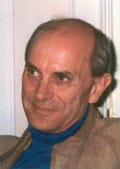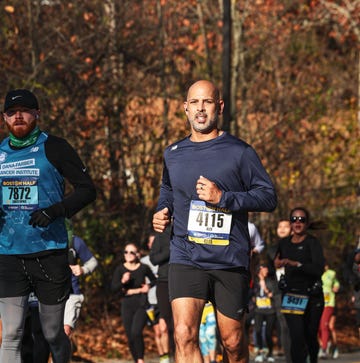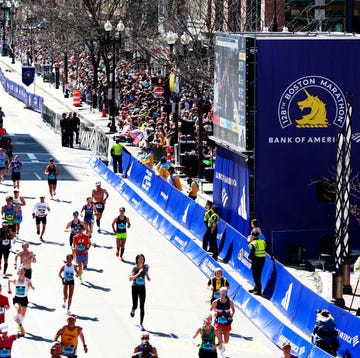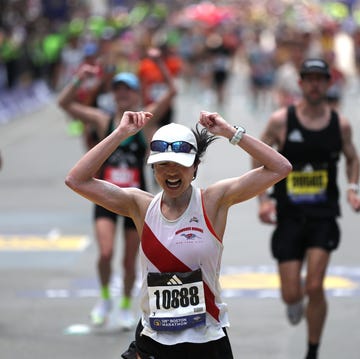Kathrine Switzer and Roger Robinson met in 1983, as speakers at the Canberra Marathon, Australia. He had written about the emergence of the women’s marathon and knew her name as sixth-fastest in the world in 1975, and more vaguely about her 1967 Boston Marathon encounter with Jock Semple. She knew his name only as a top masters runner, not his writing, university work, or TV commentary. They were married in 1987 and divide their time between New Paltz, New York, and Wellington, New Zealand.
The 261 Fearless Foundation is a global nonprofit that unites and empowers women through running, honoring the bib number 261 that Switzer wore in 1967. On April 17, by arrangement with the BAA, 121 runners will run as the 261 Fearless Boston Marathon team.
Robinson shares excerpts from his journal from the weeks leading up to Switzer’s 50th anniversary run at Boston.
As always, Kathrine tells compelling stories, and judges the tone to perfection:
It’s Kathrine’s 70th birthday. She’s busy as usual from 6 a.m. on the phone and Skype, with international media interviews and 261 Fearless Foundation issues. But she puts in an hour’s run on the local bush trail, and as a birthday treat we go to the New Zealand Ballet’s Swan Lake. She loves ballet, for its combination of physical strength, skill, and feminine beauty in motion. Her girlhood heroine was ballerina Margot Fonteyn.
Related: 50 Plan Your BQ Race So It Will Count for Two Years
January 30, Eastern Bay of Plenty, New Zealand:
Kathrine and my son Jim run 12 miles on the Pakihi Track, a remote former stock route, which he has restored and re-opened in his role as CEO of the “Motu Trails” network. I take my injured knee and 18-year-old vegan granddaughter for a hike. Later, we smuggle the younger granddaughter into Opotiki for a secret feast on meat pies. Next week, we’ll be applauding our actor grandson on stage in Wellington. Kathrine's zest, generosity, and special skill at picking gifts for teenage girls make her a much-loved step-grandmother.
Boston Red Sox Manager Completes Half Marathon:
Bernie Portenski's funeral. Hugely popular and inspirational, Bernie, a former Boston women’s masters champion, has died of cancer at 66. Our long friendship included Bernie professionally doing Kathrine's hair (always a challenge) for our wedding in 1987. Bernie in her forthright way had appointed me to conduct the big memorial service and Kathrine as one of the speakers.
As always, Kathrine tells compelling stories, and judges the tone to perfection.
“The last time we visited her in the hospice, she was so shrunken, I held her hand and all I could say was, ‘Oh, Bernie!’ And she said, ‘Oh, Kathy, oh, Kathy…what’s wrong with your hair? It looks like shit. Now you go straight to the hairdresser’s in Newtown and ask for Liz, and tell her to use color number….”
It was as speakers that Kathrine and I first met, at the Canberra Marathon. It’s an important part of the bond between us that on demanding occasions like Bernie’s funeral, we can totally rely on each other to deliver. We crack up Australian audiences every time by claiming we think of Canberra, their government center, as romantic.
February 16, Wellington:
Kathrine runs “Makara.” The famed and feared Wellington training circuit is more than 20 miles, mostly winding backroads, with two massive long hills, a total of 2,000 feet of climbing. Never before has she been in shape to tackle the whole monster. Today, she does it in part as a tribute to Bernie, who ran it so often and with such gusto that her spirit is out there, for sure. It’s also a key block in Kathrine’s buildup to Boston. Heartbreak Hill is a pimple if you’ve done Makara.
This time, I drive it, as minder, hydration service, and navigator. Finding her way over unfamiliar terrain is one of the few things Kathrine’s not good at. She likes to run the same predictable route every day so that her mind can float free.
March 7–9, Wellington:
ESPN invades. Our quiet book-filled hillside house is suddenly crowded with cameras and crew. They even have a drone, for aerial footage of Kathrine running the waterfront. Wellington’s seagulls attack it in an angry squadron formation. Don’t mess with kiwi gulls.
This is the biggest of many international interviews about Kathrine’s plan to run Boston for her 50th anniversary. She is on call all hours. Even our retirement-years ritual of morning tea and book in bed has gone. With these media demands on top of establishing the Foundation, and the complicated preparations for their team of 121 runners at Boston, the workload and stress push even Kathrine’s legendary energy to the limit. Only I know the broken nights and the anxiety headaches.
But she has amazing ability to rise to the next challenge. She never gives a bad interview. She’s a communicator of genius. Not that I listen in—I’m busy in my study, writing for Runner’s World, finishing the last revisions to a new book. The ESPN director apologizes that I’m not included.
“No worries. Today my University told me it wants to name scholarships after me. I’m not feeling unappreciated,” I tell him. And I get away to a movie.
April 2, Washington D.C:
Her longest pre-Boston run, 4 hours, 22 miles, on a typically hilly Wellington route. She asks my opinion whether she needs to run the full marathon distance. For a 70-year-old, with her experience, and the huge pressure she is under to complete this Boston, my judgment is that the risk of injury outweighs the benefits. She has inherited strength from a family of 6-foot-5 Illinois farmers, and she has the equivalent mental toughness. I’ve nudged her to include faster repeats, 5 x 1K repeats. Those and her strenuous regime of exercises have put spring back into her stride.
March 12, Wellington:
We return to our American home. The interviews and work continue, the stress increases. The news of Norb Sander’s sudden death is a shock. He won New York the same year as Kathrine, 1974, and was only three years older. We have major anxiety about a loved family member who has cancer. Cameras and celebrity afford no protection from the heartache and the thousand natural shocks of life.
Through it all, we determinedly keep some shared time in the late evenings. She cooks inventively, my specialty is creative salads that double as healthy desserts. Those times, and her running, provide balance, and calm of mind, Kathrine always says.
Controversy Over Bostons 6-Hour Results Cutoff:
She blazes through a week of nonstop meetings, interviews, and speeches. She’s bone weary by Saturday, but is committed to run some of the “Hop 21,” a training run on the Boston Marathon course. More cameras, interviewers, enthusiastic 261 Fearless friends, all are bouncing around her, but she is unfailingly generous with her attention, a human sun, on that bleak cold day.
The run revives her. (It always does.) She does 16 miles, as planned, ending strong up Heartbreak.
March 79, Wellington:
Two days of speeches and greeting runners at the Cherry Blossom Ten Mile Expo. There’s another sleepless headache night. Even I am astonished at her unflagging energy, and the genuine kindness she gives out to so many women whose lives she has touched or changed. We dodge one party (more noise, more adoration) and find the Ethiopic Restaurant for some privacy, injera, and romance. And maybe a trace of Derartu Tulu, the Ethiopian gold medalist for 10,000 meters at the 1992 Olympics, with whom we once dined here. It works. Kathrine wins the 70–74 age-group in 1:30:12, 9:01 per mile pace. She’s ready.
No woman has ever yet run a marathon 50 years after her first—everyone knows that. No woman is more resolute than Kathrine Switzer, once she sets herself a goal—only I fully know that. Jock Semple couldn’t stop her, and I can’t see anything stopping her at Boston on April 17.

Roger Robinson is a highly-regarded writer and historian and author of seven books on running. His recent Running Throughout Time: the Greatest Running Stories Ever Told and is a frequent Running Times January 30, Eastern Bay of Plenty, New Zealand Runner’s World contributor, admired for his insightful obituaries. A lifetime elite runner, he represented England and New Zealand at the world level, set age-group marathon records in Boston and New York, and now runs top 80-plus times on two knee replacements. He is Emeritus Professor of English at Victoria University of Wellington, New Zealand, and is married to women’s running pioneer Kathrine Switzer.














